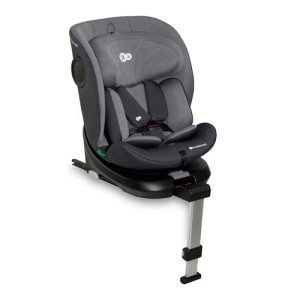11 Ways To Completely Revamp Your Pram And Pushchair
Prams and Pushchairs: A Comprehensive Guide for New Parents
Browsing being a parent includes a wide variety of decisions, among the most significant being the choice of an ideal pram or pushchair. These essential products work as a sanctuary for babies and a means of transportation for caretakers. Whether walking through the park or running errands, an excellent pram or pushchair can improve the experience for both moms and dad and kid. This post provides an extensive take a look at the types of prams and pushchairs offered, their features, and necessary factors to consider to make before buying one.
Comprehending Prams and Pushchairs
While the terms “pram” and “pushchair” are typically used interchangeably, they describe a little various products. Comprehending the distinction can assist in making an educated choice.
Term
Description
Pram
Typically developed for infants, prams have a totally flat structure, enabling the baby to rest easily. Pram Vs Pushchair feature a carrycot and are appropriate for newborns up to about six months old.
Pushchair
Designed for older babies and toddlers, pushchairs frequently have a more upright seating position. They are versatile and can normally be reclined or changed to deal with the child's growth, beginning with around six months and extending to preschool age.
Types of Prams and Pushchairs
When choosing a pram or pushchair, various styles will accommodate different parenting needs and lifestyles. Here are the main types offered on the market:
Traditional Prams
- Traditional, classic styles with a strong carrycot.
- Ideal for newborns.
- Normally bulkier, ideal for leisurely walks.
Pushchairs
- Light-weight and frequently foldable, perfect for travel and quick trips.
- Can be front-facing or rear-facing.
- Include functions like adjustable handlebars and reclining seats.
Travel Systems
- A mix of a car seat and a pushchair.
- Convenient for car-to-pushchair shifts without disturbing the baby.
- Typically more expensive however worth considering for their multifunctionality.
Multi-Functional Strollers
- Offer various setups, enabling for a carrycot, sit-up seat, or car seat accessory.
- Adaptable as per the child's growth and changing needs.
- Can often be utilized for several children with accessories.
Lightweight Strollers
- Ultra-portable, ideal for parents on the go.
- Easy to fold and carry.
- Normally recommended for older babies or toddlers.
Key Features to Consider
When picking the best pram or pushchair, a couple of critical features ought to be considered:
Safety Features
- Search for a five-point harness system to protect the kid.
- Models with braking systems that are easy to operate with the foot deal added safety.
Weight and Size
- Consider how much weight the caretaker can manage, and the storage space readily available.
- A lightweight model might offer much easier maneuverability, while a bulkier model may use much better stability and resilience.
Toughness and Material
- A frame made from top quality products makes sure longevity.
- Weather-resistant fabrics can offer convenience and ease of cleansing.
Relieve of Folding
- Models that can be folded rapidly and easily are usually favored, especially for moms and dads who need to utilize public transport or have actually limited storage space.
Handling and Comfort
- Adjustable manages can accommodate various heights, making sure a comfy push for all caregivers.
- Great suspension is necessary for smoother trips on uneven surface areas.
Preparing for the Purchase
Before buying, it's a good idea to conduct comprehensive research. The following steps will assist brand-new parents make a notified choice:
Define Your Needs
- Think about lifestyle factors such as travel frequency, city vs. suburban living, and storage space.
Budgeting
- Prams and pushchairs vary considerably in price. Set a reasonable budget, bearing in mind safety and quality.
Test Drive
- Whenever possible, check the pram or pushchair. Focus on weight, maneuverability, and total convenience.
Moms And Dad and Baby Reviews
- Try to find feedback from other parents who have utilized the item. This can offer insights into real-world performance.
Inspect for Warranty
- An excellent guarantee can protect your investment and guarantee durability.
FAQs
Q1: At what age can a baby use a pushchair?Typically, babies can
_start utilizing a pushchair around 6 months when they can hold their direct independently. Prior to that, a pram or carrycot is suggested. Q2: Are travel systems worth the investment?Yes, travel systems can offer fantastic value for moms and dads who require a smooth transition in between the
_cars and truck and stroller. They provide convenience and flexibility, particularly for families who frequently travel. Q3: How long can you use a pushchair?Most pushchairs can be utilized up until a kid is around 3 to 4 years old, though some designs provide features for bigger kids. Q4: Do I need a new pram or pushchair for each child?If your existing design remains in excellent condition and fulfills security standards, there may be no need for a brand-new one. Nevertheless, think about elements like wear and tear, health, and evolving requirements. Selecting the ideal pram or pushchair is a crucial choice for any brand-new parent. With a variety of styles, types, and features available, parents can find a model that matches their needs, way of life, and budget.__
By researching and understanding the differences in between prams and pushchairs, moms and dads can make a positive and educated choice that will supply the most safe, most practical experience for their kid. As they embark on this exciting journey of being a parent, having the best transportation option can truly improve the experience of raising a child. 